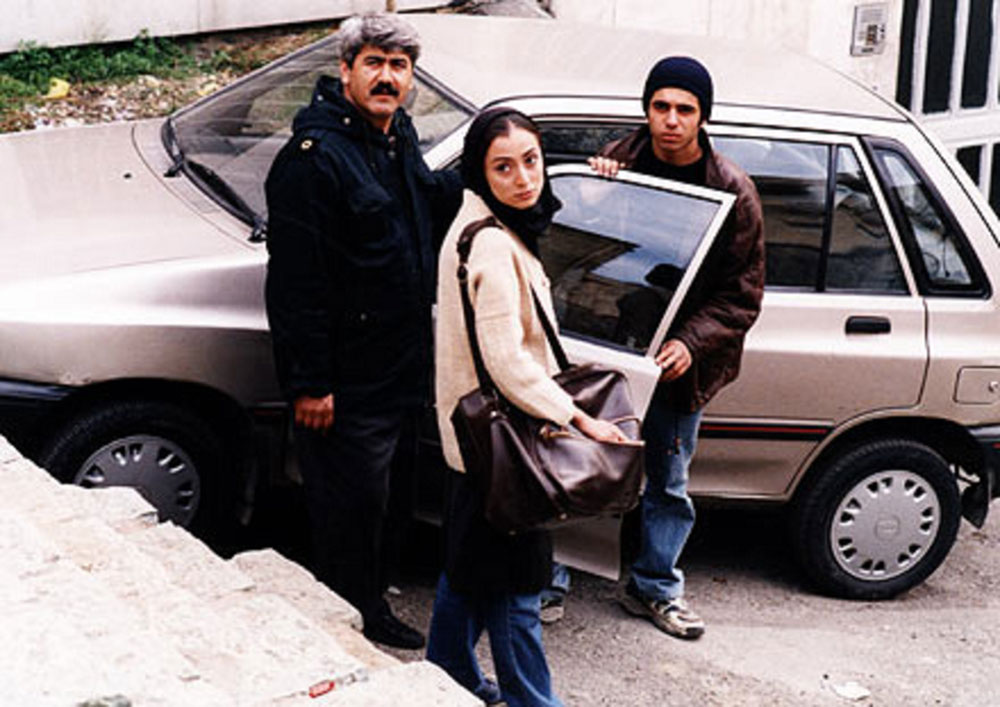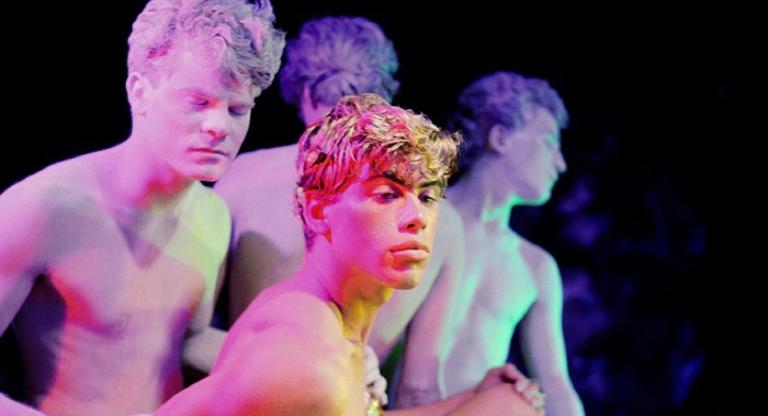When Deep Breath was released in 2003, a slew of socially critical films from Iran were touring the international festival circuit. Grim portraits of urban decay like Jafar Panahi’s Crimson Gold (also 2003) were largely read by Western critics as covert critiques of the government. Indeed, the energized base of young voters that had elected Mohammad Khatami president on a platform of political reform in 1997 was noticeably subdued by the time of his 2001 re-election, disenchanted with his alleged weakness in the face of state power during crises like the 18th of Tir student uprising and the subsequent police crackdown on protesters.
This last point is relevant to Parviz Shabazi’s cinema, whose focus on Iranian youth in revolt began with Deep Breath. Kamran (Said Amioni) is an affluent and depressed scholar slowly withdrawing from his college modules at the University of Tehran. He and his working-class buddy Mansour (Mansour Shahbazi) roam the streets committing petty vandalism, scamming easy marks, or simply finding a place to sleep. “I want to stay alive just to annoy people,” Mansour quips, but this cynical shell is cracked by the iconoclastic wit of a college student, Ayda (Maryam Palyzban), who leaves him smitten.
But is potential romance enough to stave off nihilism? An ominous portent of dread announces itself in the opening sequence when a team of rescue divers retrieve the body of a drowned woman in the Amir Kabir reservoir. But when Shabhazi cuts to the submerged body, a mane of black hair obscuring their face, we soon realize it’s Kamran we’re seeing, still very much alive as he rises to the surface of a swimming pool. It’s a seamless transition that punctures the film’s realism and situates us in the perspective of a despairing adult whose fate may already be symbolically sealed.
The film’s fatalism doesn’t dilute the humanity of its characters, however. A subplot involving a pair of twins scamming the hostel managers they’re paying provides the film’s broadest flashes of comedy, but the joke remains rooted in compassion for those on society’s fringes. Twenty years later, Shabazi’s film remains sensitively attuned to the ways Iranian youth navigate the precarious strictures of class and gender roles. Its bleak but hardly cynical humanism resonates with a generation whose disenchantment, made all-too clear in the Green Movement and the Mahsa Amini protests, has metastasized into an uncontainable cri de cœur.
Deep Breath screens tonight, September 28, at Anthology Film Archives as part of the series “Bidoun Presents.”



